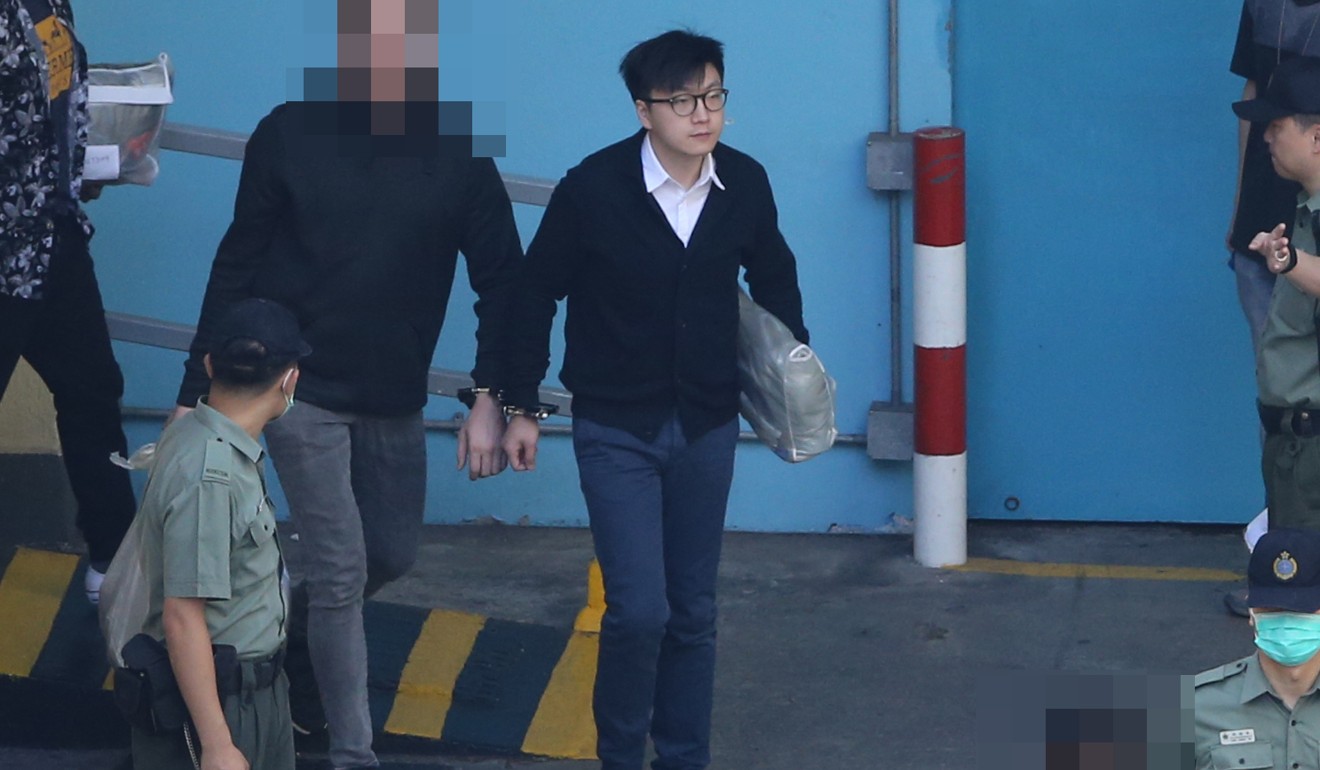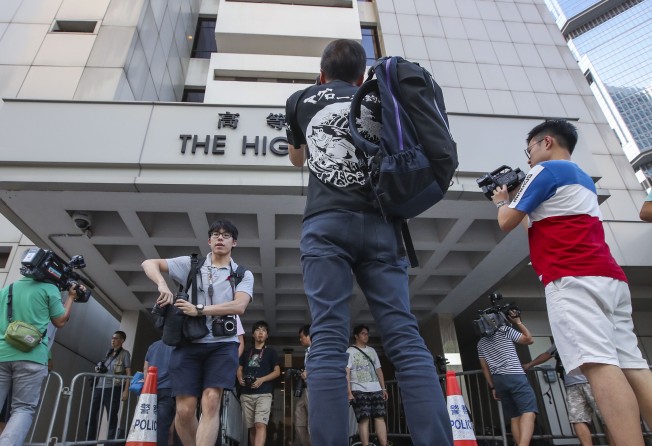
Photo scandal at Hong Kong court: integrity and jury safety under spotlight after Edward Leung trial
City’s legal eagles call for tighter security and tougher punishments after anonymous email sender promises ‘more’ photos of jurors at riot trial

The integrity of Hong Kong’s courts and safety of juries have come under the spotlight after a photo of jurors in the high-profile trial of an independence activist was sent in an anonymous email to the judiciary.
Legal heavyweights on Saturday called for tighter security and tougher penalties for those who flout court rules, but experts were split on whether the jury should have been dismissed earlier.
There had been at least two other suspected cases of photography at the trial, which involved nine defendants, including localist Edward Leung Tin-kei, over the 2016 Mong Kok riot.
On Friday afternoon, shortly before the verdicts were delivered, the judge revealed that a photo of at least four of the nine jurors had been sent to an email account managed by the judiciary’s complaints office. An accompanying Chinese line in the email read: “There are a lot more.”
A police source told the Post that the email had been sent at 8am on Friday but only read by judiciary staff at 10am.
The judge closed the public gallery at about 4.30pm and only broke the news to the jury after they delivered their verdicts, in which Leung was found guilty of rioting but cleared of incitement.
The email only contained the photo and the warning words.
According to another source, the picture was believed to have been taken from the last few rows of public seats in the courtroom. Authorities would trace the IP address of the email sender and might also look into two other suspected cases to see if they were linked.

Veteran barrister Lawrence Lok Ying-kam said the jury should have been dismissed in February, when a Chinese man claiming to be a tourist was caught taking photos of the trial with his smartphone. Multiple images and a short video were captured. He also shared a photo on popular Chinese social media platform WeChat.
At the time, judge Madam Justice Anthea Pang Po-kam categorised the incident as a “careless mistake”.
According to New People’s Party lawmaker Eunice Yung Hoi-yan, also a barrister, the banning of photography inside courtrooms is to ensure judges and jurors can conduct a fair trial free from interference and unnecessary pressure.
In March, another man was approached by police on suspicion of taking photos at the same trial. But it was understood officers did not find photos or transmission records on the man’s phone.
“The photos could have been sent anywhere via a social network. Technically this could influence the jury, and that would have been a better time to dismiss the jury,” Lok said.
The photos could have been sent anywhere via a social network ... potential damage has been done
“Potential damage has been done, it is just that the presiding judge has not taken it seriously.”
Lok however noted there was no evidence so far indicating the jury was troubled by the photos.
To deter such acts, Lok suggested introducing tougher penalties.
Current regulations state photography in Hong Kong courts can lead to a fine of HK$2,000 (US$255). Under common law, any interference with the jury can be considered contempt of court.
Bar Association chairman Philip Dykes said jurors could feel intimidated if their photos were taken.
On whether Pang should have dismissed the jury in February, he stressed the judge “has dealt” with the case with the “facts before her”.
“I am not going to criticise the judge,” Dykes said.
It would be a matter of public education going forward, he added, or of putting up signs warning against such acts in court.
“Tightening security inside court means everybody surrendering their mobile phones – and nobody would think to go that far,” he said.
University of Hong Kong legal scholar Eric Cheung Tat-ming said the judiciary could consider introducing “risk-based” security measures and identity card registrations for people who wanted to observe a high-profile case from the public gallery.